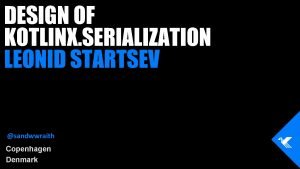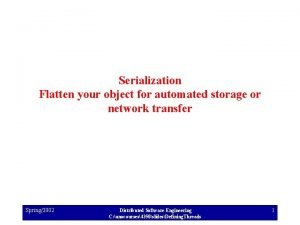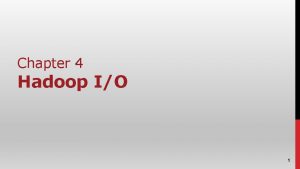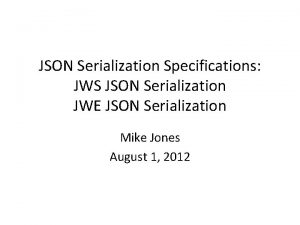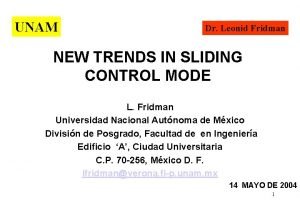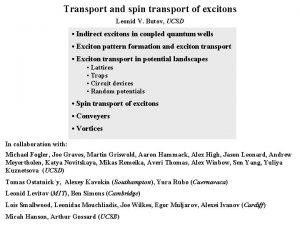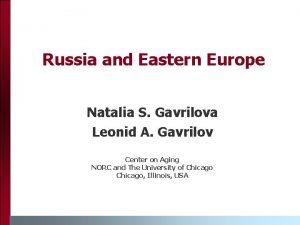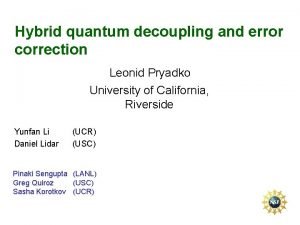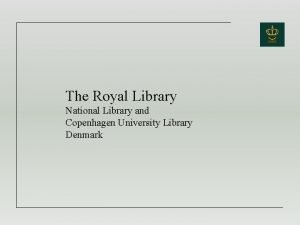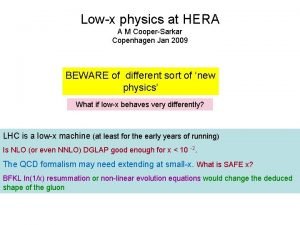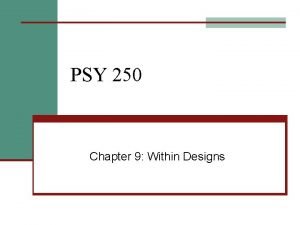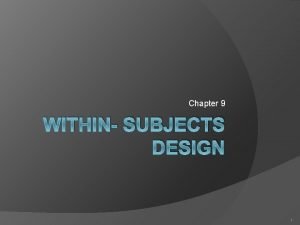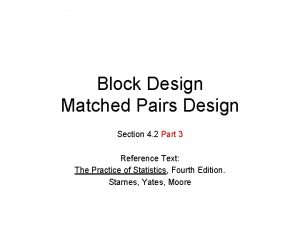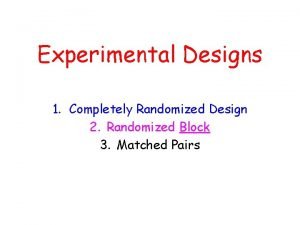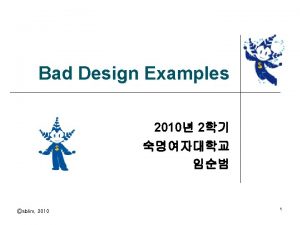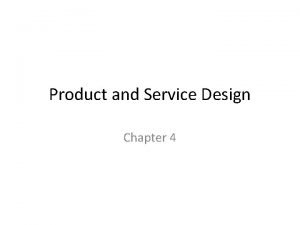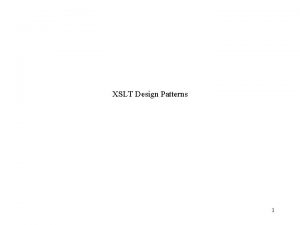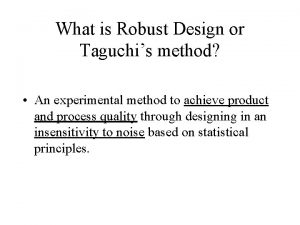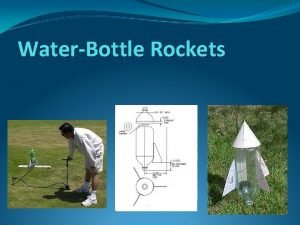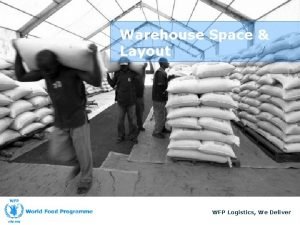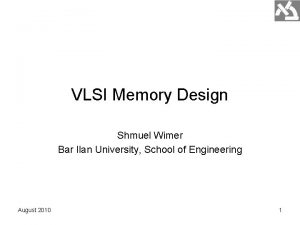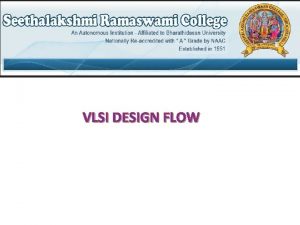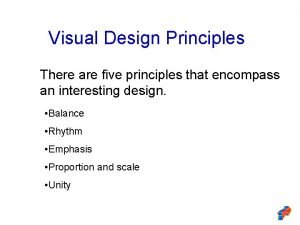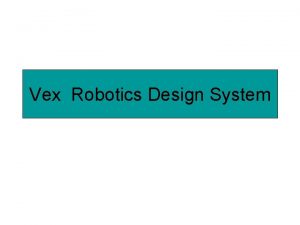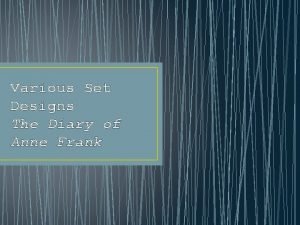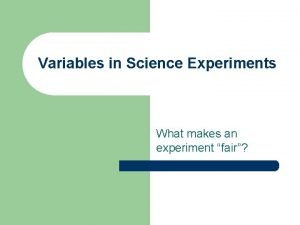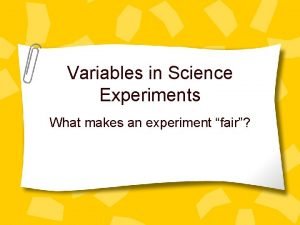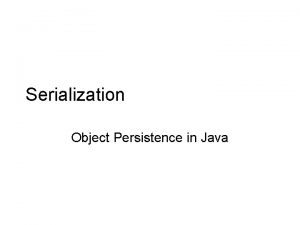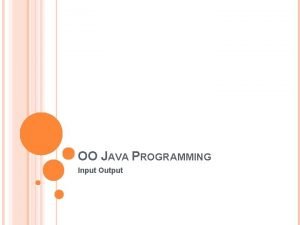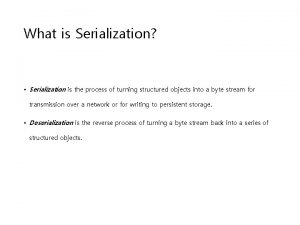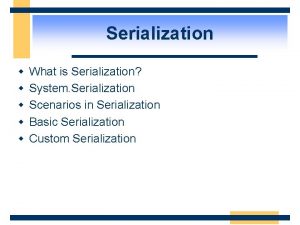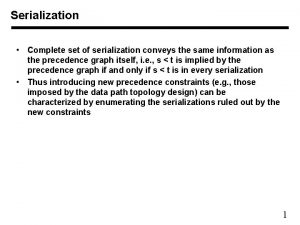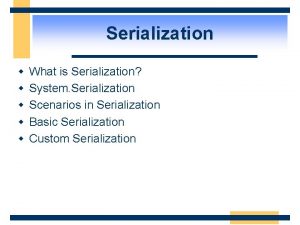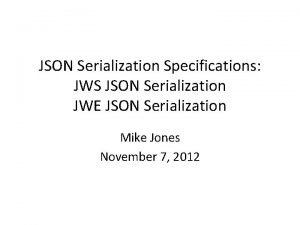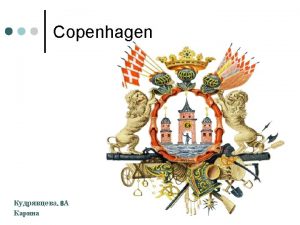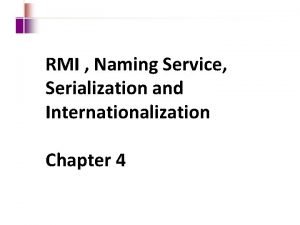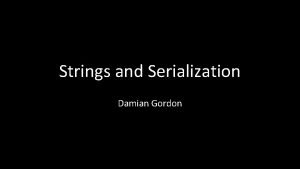DESIGN OF KOTLINX SERIALIZATION LEONID STARTSEV sandwwraith Copenhagen





























































![How KSerializer looks inside? . deserialize call begin. Structure decode. Element. Index decode[Type]Element 62 How KSerializer looks inside? . deserialize call begin. Structure decode. Element. Index decode[Type]Element 62](https://slidetodoc.com/presentation_image_h/c99ee47181ca06eac591a92824a7f05b/image-62.jpg)
![How KSerializer looks inside? . deserialize call begin. Structure decode. Element. Index decode[Type]Element end. How KSerializer looks inside? . deserialize call begin. Structure decode. Element. Index decode[Type]Element end.](https://slidetodoc.com/presentation_image_h/c99ee47181ca06eac591a92824a7f05b/image-63.jpg)



































- Slides: 98

DESIGN OF KOTLINX. SERIALIZATION LEONID STARTSEV @sandwwraith Copenhagen Denmark

At a first glance, it looks like a regular JSON library 2

At a first glance, it looks like a regular JSON library val json = Json(Json. Configuration. Stable) 3

At a first glance, it looks like a regular JSON library val json = Json(Json. Configuration. Stable) json. parse(. . . ) json. stringify(. . . ) 4

Why do we need yet another json parser? 5

Why do we need yet another json parser? These all are Java libraries 6

Multiplatform @Serializable data class Session( val id: String, val is. Service. Session: Boolean, val is. Plenum. Session: Boolean, val question. Answers: List<Question. Answer>, val speakers: List<String>, @Serial. Name("description") val description. Text: String? , val starts. At: String? , val title: String, val ends. At: String? , val category. Items: List<Int>, val room. Id: Int? ) 7

Kotlin-oriented data class Data( val data: String, val optional. Data: String = "empty" ) const val input. String = """{"data": "Foo"}""" 8

Kotlin-oriented data class Data( val data: String, val optional. Data: String = "empty" ) val data = Gson(). from. Json(input. String, Data: : class. java) // Data(data=Foo, optional. Data=null) Null for non-nullable type, definitely an error 9

Kotlin-oriented @Serializable data class Data( val data: String, val optional. Data: String = "empty" ) val data = Json. parse(Data. serializer(), input. String) // Data(data=Foo, optional. Data=empty) OK! 10

Explicit @Serializable data class Data( val data: String, val optional. Data: String = "empty" ) 11

Explicit @Serializable data class Data( val data: String, val optional. Data: String = "empty" ) val serializer: KSerializer<Data> = Data. Companion. serializer() 12

Explicit @Serializable data class Data( val data: String, val optional. Data: String = "empty" ) val serializer: KSerializer<Data> = Data. Companion. serializer() val data = Json. parse(Data. serializer(), input. String) 13

Implicit requires opt-in val data = Json. parse<List<Data>>(input. String) 14

Implicit requires opt-in val data = Json. parse<List<Data>>(input. String) This declaration is experimental and its usage must be marked with @Use. Experimental(Implicit. Reflection. Serializer: : class) 15

Implicit requires opt-in val data = Json. parse<List<Data>>(input. String) This declaration is experimental and its usage must be marked with @Use. Experimental(Implicit. Reflection. Serializer: : class) ● Doesn’t work on Native ● Doesn’t work for collections 16 https: //github. com/Kotlin/kotlinx. serialization/blob/master/runtime/common. Main/src/kotlinx/serialization/Serial. Implicits. kt#L 8

Concise val data: List<Data> = Gson(). from. Json( ) 17

Concise val data: List<Data> = Gson(). from. Json( input. Generic. String, (object: Type. Token<List<Data>>() {}). type ) A lot of ceremony 18

Concise val data: List<Data> = Json. parse( Data. serializer(). list, ) input. Generic. String Short and uniform 19 https: //github. com/Kotlin/kotlinx. serialization/blob/master/docs/runtime_usage. md#obtaining-serializers

Explicit & concise & compiletime safe @Serializable data class Complex. Data( val description: String, val data: Complex. Class ) 20

Explicit & concise & compiletime safe @Serializable data class Complex. Data( val description: String, val data: Complex. Class ) Serializer for type ‘Complex. Class’ has not been found IDE diagnostic! (from Kotlin 1. 3. 50) 21

Formats are pluggable val string. Data = Json. stringify(Data. serializer(), data) val bytes. Data 22 = Proto. Buf. dump (Data. serializer(), data)

Formats are pluggable val string. Data = Json. stringify(Data. serializer(), data) val bytes. Data = Proto. Buf. dump (Data. serializer(), data) Different formats, same API 23

Difference between serializer and format 24

Difference between serializer and format Stream of primitives Kotlin class Serialization by serializer 25 Output stream Encoding by format

Difference between serializer and format ● Optionals handling ● Class metadata Stream of primitives Kotlin class Serialization by serializer 26 Output stream Encoding by format

Difference between serializer and format ● Optionals handling ● Class metadata Stream of primitives Kotlin class Serialization by serializer 27 ● Text or bytes ● Versioning ● Schema or schemaless Output stream Encoding by format

Formats have their specific configuration val json = Json(Json. Configuration( encode. Defaults = false, unquoted = true, pretty. Print = true )) 28

Formats have their specific configuration val json = Json(Json. Configuration( encode. Defaults = false, unquoted = true, pretty. Print = true )) val protobuf = Proto. Buf() 29

Part II Behind the scenes

Why @Serializable and apply plugin: ‘. . . ’? @Serializable data class Data( val data: String, val optional. Data: String = "empty" ) 31

Why @Serializable and apply plugin: ‘. . . ’? @Serializable data class Data( val data: String, val optional. Data: String = "empty" ) // @Serializable data class Data( val data: String, val optional. Data: String = "empty" ) 32

Why @Serializable and apply plugin: ‘. . . ’? apply plugin: 'kotlin-multiplatform' //apply plugin: 'kotlinx-serialization' 33

Why @Serializable and apply plugin: ‘. . . ’? apply plugin: 'kotlin-multiplatform' apply plugin: 'kotlinx-serialization' Kotlin serialization consists of acompiler plugin, which automatically produces visitor code for classes, and runtime library, which uses generated code to serialize objects without reflection. 34

What is a compiler plugin, anyway? 35

What is a compiler plugin, anyway? MAGIC 36

What is a compiler plugin, anyway? Frontend (parsing, resolution) JVM Backend 37 JS Backend Very simple scheme of Kotlin compiler Native Backend

Serialization plugin Adds. serializer() function Frontend (parsing, resolution) JVM Backend 38 JS Backend Not so simple scheme of Kotlin compiler Native Backend

Serialization plugin Adds. serializer() function Frontend (parsing, resolution) Additional code generation JVM Backend 39 JS Backend Not so simple scheme of Kotlin compiler Native Backend

So we are writing a serializer, right? 40

Difference between serializer and format Stream of primitives Kotlin class Serialization by serializer 41 Output stream Encoding by format

Which methods does Encoder have? interface Encoder { fun encode. Not. Null. Mark() fun encode. Null() fun fun fun encode. Unit() encode. Boolean(value: Boolean) encode. Byte(value: Byte) encode. Short(value: Short) encode. Int(value: Int) encode. Long(value: Long) encode. Float(value: Float) encode. Double(value: Double) encode. Char(value: Char) fun encode. String(value: String) fun encode. Enum(enum. Description: Enum. Descriptor, ordinal: Int) } 42 fun <T : Any? > encode. Serializable. Value(serializer: Serialization. Strategy<T>, value: T)

Which methods does Encoder have? interface Encoder { fun encode. Not. Null. Mark() fun encode. Null() fun fun fun encode. Unit() encode. Boolean(value: Boolean) encode. Byte(value: Byte) encode. Short(value: Short) encode. Int(value: Int) encode. Long(value: Long) encode. Float(value: Float) encode. Double(value: Double) encode. Char(value: Char) One function for each ‘primitive’ data type fun encode. String(value: String) fun encode. Enum(enum. Description: Enum. Descriptor, ordinal: Int) } 43 fun <T : Any? > encode. Serializable. Value(serializer: Serialization. Strategy<T>, value: T)

Transform to single value @Serializable data class Color(val r: Int, val g: Int, val b: Int) 44

Transform to single value @Serializable data class Color(val r: Int, val g: Int, val b: Int) "#00 FFAA" 45

Transform to single value object Single. Color. Serializer : KSerializer<Color> { override fun serialize(encoder: Encoder, obj: Color) { } } 46

Transform to single value object Single. Color. Serializer : KSerializer<Color> { override fun serialize(encoder: Encoder, obj: Color) { val code: String = obj. r. to. Hex. Code() + obj. g. to. Hex. Code() + obj. b. to. Hex. Code() } } 47

Transform to single value object Single. Color. Serializer : KSerializer<Color> { override fun serialize(encoder: Encoder, obj: Color) { val code: String = obj. r. to. Hex. Code() + obj. g. to. Hex. Code() + obj. b. to. Hex. Code() encoder. encode. String("#$code") } } 48

Transform from multiple values """{"red": 255, "green": 128, "blue": 0}""" 49

Transform from multiple values """{"red": 255, "green": 128, "blue": 0}""" @Serializable data class Color(val argb: Int) 50

Transform from multiple values override fun deserialize(decoder: Decoder): Color { var result = 0 result += decoder. decode. Int() shl 16 result += decoder. decode. Int() shl 8 result += decoder. decode. Int() shl 0 return Color(result) } 51

Transform from multiple values override fun deserialize(decoder: Decoder): Color { var result = 0 result += decoder. decode. Int() shl 16 result += decoder. decode. Int() shl 8 result += decoder. decode. Int() shl 0 return Color(result) } We don’t know whether ‘red’ goes first or not 52

How to handle structured data interface Composite. Encoder { fun encode. Int. Element(desc: Serial. Descriptor, index: Int, value: Int). . . fun encode. String. Element(desc: Serial. Descriptor, index: Int, value: String) } Containing declaration 53 Position in structure https: //github. com/Kotlin/KEEP/blob/master/proposals/extensions/serialization. md#encoder-interfaces

Transform from multiple values object Multiple. Color. Serializer : KSerializer<Color> { override fun deserialize(decoder: Decoder): Color { var result = 0 } 54 } return Color(result)

Transform from multiple values object Multiple. Color. Serializer : KSerializer<Color> { override fun deserialize(decoder: Decoder): Color { var result = 0 val decoder: Composite. Decoder = decoder. begin. Structure(descriptor) decoder. end. Structure(descriptor) return Color(result) } } 55

Transform from multiple values override fun deserialize(decoder: Decoder): Color { var result = 0 val decoder = decoder. begin. Structure(descriptor) while (true) { when (val i = decoder. decode. Element. Index(descriptor)) { } } 56 } decoder. end. Structure(descriptor) return Color(result)

Transform from multiple values override fun deserialize(decoder: Decoder): Color { var result = 0 val decoder = decoder. begin. Structure(descriptor) } 57 loop@ while (true) { when (val i = decoder. decode. Element. Index(descriptor)) { 0 -> result += decoder. decode. Int. Element(descriptor, i) shl 16 1 -> result += decoder. decode. Int. Element(descriptor, i) shl 8 2 -> result += decoder. decode. Int. Element(descriptor, i) shl 0 READ_DONE -> break@loop } } decoder. end. Structure(descriptor) return Color(result)

Difference between serializer and format Stream of primitives Kotlin class Serialization by serializer Can be auto-generated! 58 Output stream Encoding by format

How KSerializer looks inside? @Serializable data class Data( val data: String, val optional. Data: String = "empty" ) 59

How KSerializer looks inside? 60

How KSerializer looks inside? 61 https: //github. com/Kotlin/KEEP/blob/master/proposals/extensions/serialization. md#code-generation
![How KSerializer looks inside deserialize call begin Structure decode Element Index decodeTypeElement 62 How KSerializer looks inside? . deserialize call begin. Structure decode. Element. Index decode[Type]Element 62](https://slidetodoc.com/presentation_image_h/c99ee47181ca06eac591a92824a7f05b/image-62.jpg)
How KSerializer looks inside? . deserialize call begin. Structure decode. Element. Index decode[Type]Element 62
![How KSerializer looks inside deserialize call begin Structure decode Element Index decodeTypeElement end How KSerializer looks inside? . deserialize call begin. Structure decode. Element. Index decode[Type]Element end.](https://slidetodoc.com/presentation_image_h/c99ee47181ca06eac591a92824a7f05b/image-63.jpg)
How KSerializer looks inside? . deserialize call begin. Structure decode. Element. Index decode[Type]Element end. Structure 63 Constructor call

Serial. Descriptor 64

Serial. Descriptor @Serializable data class Data( val data: String, val optional. Data: String = "empty" ) 65

Serial. Descriptor @Serializable data class Data( val data: String, val optional. Data: String = "empty" ) name 66 "com. myapp. Data"

Serial. Descriptor @Serializable data class Data( val data: String, val optional. Data: String = "empty" ) Contains useful meta information 67 name "com. myapp. Data" elements[0]. name "data" elements[1]. name "optional. Data" elements[1]. is. Optional true

Part III Diving into encoding

Format interfaces don’t tell you anything about… format override fun encode. Int(value: Int) = ? ? ? override fun encode. String(value: String) = ? ? ? 69

Serializable = Parcelable? class Parcelizer(val bundle: Bundle): Named. Value. Encoder() { } 70

Serializable = Parcelable? class Parcelizer(val bundle: Bundle): Named. Value. Encoder() { override fun encode. Tagged. Int(tag: String, value: Int) { } override fun encode. Tagged. String(tag: String, value: String) { } } 71

Serializable = Parcelable class Parcelizer(val bundle: Bundle): Named. Value. Encoder() { override fun encode. Tagged. Int(tag: String, value: Int) { bundle. put. Int(tag, value) } override fun encode. Tagged. String(tag: String, value: String) { bundle. put. String(tag, value) } } 72

Serializable = Multiplatform Parcelable expect class Bundle actual typealias Bundle = android. os. Bundle class Parcelizer(val bundle: Bundle): Named. Value. Encoder() { override fun encode. Tagged. Int(tag: String, value: Int) { bundle. put. Int(tag, value) } override fun encode. Tagged. String(tag: String, value: String) { bundle. put. String(tag, value) } } 73

You even don’t have to store values anywhere 74

You even don’t have to store values anywhere val digest = Message. Digest. get. Instance("MD 5") 75

You even don’t have to store values anywhere val digest = Message. Digest. get. Instance("MD 5") class Hasher(val digest: Message. Digest): Element. Value. Encoder() { } 76

You even don’t have to store values anywhere val digest = Message. Digest. get. Instance("MD 5") class Hasher(val digest: Message. Digest): Element. Value. Encoder() { override fun encode. Byte(value: Byte) { digest. update(value) } override fun encode. String(value: String) { digest. update(value. to. Byte. Array()) } } 77

ORM done wrong class Statement. Serializer(val stmt: Prepared. Statement): Element. Value. Encoder() { } 78

ORM done wrong class Statement. Serializer(val stmt: Prepared. Statement): Element. Value. Encoder() { override fun encode. String(value: String) { stmt. set. String(i++, value) } } 79

ORM done wrong class Statement. Serializer(val stmt: Prepared. Statement): Element. Value. Encoder() { override fun encode. String(value: String) { stmt. set. String(i++, value) } } class Result. Set. Deserializer(private val rs: Result. Set): Named. Value. Decoder() { } 80

ORM done wrong class Statement. Serializer(val stmt: Prepared. Statement): Element. Value. Encoder() { override fun encode. String(value: String) { stmt. set. String(i++, value) } } class Result. Set. Deserializer(private val rs: Result. Set): Named. Value. Decoder() { override fun decode. Tagged. String(tag: String): String { return rs. get. String(tag) } } 81

Serial. Descriptor @Serializable data class Data( val data: String, val optional. Data: String = "empty" ) Contains useful meta information 82 name "com. myapp. Data" elements[0]. name "data" elements[1]. name "optional. Data" elements[1]. is. Optional true

Serial. Descriptor @Serializable data class Generic. Data<T>( val description: String, val content: T ) 83

Serial. Descriptor @Serializable data class Generic. Data<T>( val description: String, val content: T ) Generic. Data. serializer()). descriptor. dump() 84

Serial. Descriptor Generic. Data content data 85 description optional. Data

Serial. Descriptor Generic. Data com. myapp. Generic. Data { description : kotlin. String content : com. myapp. Data { data : kotlin. String optional. Data : kotlin. String } } content data 86 description optional. Data

JSON Schema 87

JSON Schema fun Json. Schema(descriptor: Serial. Descriptor): Json. Object { } 88

JSON Schema fun Json. Schema(descriptor: Serial. Descriptor): Json. Object { descriptor. element. Descriptors(). for. Each. Indexed { index, child -> } } 89

JSON Schema fun Json. Schema(descriptor: Serial. Descriptor): Json. Object { } 90 descriptor. element. Descriptors(). for. Each. Indexed { index, child -> val element. Name = descriptor. get. Element. Name(index) properties[element. Name] = Json. Schema(child) }

JSON Schema fun Json. Schema(descriptor: Serial. Descriptor): Json. Object { descriptor. element. Descriptors(). for. Each. Indexed { index, child -> val element. Name = descriptor. get. Element. Name(index) properties[element. Name] = Json. Schema(child) } } 91 val object. Data = mutable. Map. Of( "description" to Json. Literal(descriptor. name), "properties" to Json. Object(properties) ) return Json. Object(object. Data) https: //github. com/Kotlin/kotlinx. serialization/blob/master/examples/example-visitors/src/main/kotlinx/serialization/schema/Json. Schema. kt

@Serializable data class Data(val data: String, val optional. Data: String = "empty") { 92 } "description": "com. myapp. Data", "properties": { "data": { "description": "kotlin. String" }, "optional. Data": { "description": "kotlin. String" } }

Roadmap

Roadmap ✓ Core ✓ Meta information in descriptors ✓ Multiplatform polymorphism ✓ IDE diagnostics ✓ Objects and sealed classes ✓ Done

Roadmap ✓ Core ✓ Done ✓ Meta information in descriptors ✓ Multiplatform polymorphism ✓ IDE diagnostics ✓ Objects and sealed classes ➢ Inline classes ➢ In progress

Roadmap ✓ Core ✓ Done ✓ Meta information in descriptors ✓ Multiplatform polymorphism ✓ IDE diagnostics ✓ Objects and sealed classes ➢ Inline classes ➢ In progress IO Streaming & Performance tuning Planned

Roadmap ✓ Core ✓ Done ✓ Meta information in descriptors ✓ Multiplatform polymorphism ✓ IDE diagnostics ✓ Objects and sealed classes ➢ Inline classes ➢ In progress IO Streaming & Performance tuning Planned Out of experimental Kotlin 1. 4 Community driven formats

THANK YOU AND REMEMBER TO VOTE https: //github. com/Kotlin/ kotlinx. serialization Leonid Startsev@sandwwraith #Kotlin. Conf
 Kserializer
Kserializer Kotlinx serialization performance
Kotlinx serialization performance Brazil serialization requirements
Brazil serialization requirements Can't pickle psycopg2.extensions.connection objects
Can't pickle psycopg2.extensions.connection objects Hadoop i/o hadoop comes with a set of
Hadoop i/o hadoop comes with a set of Network serialization
Network serialization Jws json serialization
Jws json serialization Drug supply chain security act definition
Drug supply chain security act definition Leonid fridman
Leonid fridman Leonid barenboim
Leonid barenboim America needs its nerds essay
America needs its nerds essay Leonid gavrilov
Leonid gavrilov Leonid gavrilov
Leonid gavrilov Leonid gavrilov
Leonid gavrilov Leonid gavrilov
Leonid gavrilov Leonid afremov
Leonid afremov Leonid gavrilov
Leonid gavrilov Leonid gavrilov
Leonid gavrilov Trends of 1950s
Trends of 1950s Leonid gurvits
Leonid gurvits Leonid pryadko
Leonid pryadko Royal library københavn
Royal library københavn Copenhagen interpretation
Copenhagen interpretation Copenhagen criteria
Copenhagen criteria Copenhagen school five sectors of security
Copenhagen school five sectors of security Securitization copenhagen school
Securitization copenhagen school Copenhagen charter cos'è
Copenhagen charter cos'è Copenhagen charter cos'è
Copenhagen charter cos'è Reflections copenhagen
Reflections copenhagen Internet copenhagen
Internet copenhagen Copenhagen burnout inventory wikipedia
Copenhagen burnout inventory wikipedia Copenhagen interpretation
Copenhagen interpretation Completeness in quantum mechanics
Completeness in quantum mechanics Hera copenhagen
Hera copenhagen Ems 2018 copenhagen
Ems 2018 copenhagen Dr david galbreath
Dr david galbreath Copenhagen
Copenhagen Arv copenhagen
Arv copenhagen Copenhagen golf center
Copenhagen golf center Arv copenhagen
Arv copenhagen Visual communication design study design
Visual communication design study design Output design in system analysis and design
Output design in system analysis and design Structural and decorative design in interior design
Structural and decorative design in interior design Decorative design types
Decorative design types Partial counterbalancing psychology
Partial counterbalancing psychology Split range
Split range Between subjects vs within subjects
Between subjects vs within subjects Between-subjects design vs within
Between-subjects design vs within Matched pairs design diagram
Matched pairs design diagram User interface design in system analysis and design
User interface design in system analysis and design Completely randomized design vs matched pairs
Completely randomized design vs matched pairs Elements and principles of design ppt
Elements and principles of design ppt Bad design examples
Bad design examples Repeated-measures design
Repeated-measures design Dialogue design
Dialogue design Byzantine floral history
Byzantine floral history What does product and service design do
What does product and service design do Libidau
Libidau Design brief design statement
Design brief design statement Yearbook design elements
Yearbook design elements Stylesheet design
Stylesheet design Backward mapping template
Backward mapping template Engineering design brief
Engineering design brief Design brief pltw
Design brief pltw Job design definition
Job design definition Importance of portfolio in work immersion
Importance of portfolio in work immersion Chapter 7 work design and measurement
Chapter 7 work design and measurement Perbedaan within dan between
Perbedaan within dan between Hairpin method floral design
Hairpin method floral design Define robust design
Define robust design Engineering design process quiz answers
Engineering design process quiz answers Elementary welding symbols
Elementary welding symbols Offshore platform design
Offshore platform design Oswego web design
Oswego web design Web design in a nutshell
Web design in a nutshell Web design final exam
Web design final exam Aerodynamics of a water bottle rocket
Aerodynamics of a water bottle rocket Horizontal grit chamber
Horizontal grit chamber Warehouse space calculation
Warehouse space calculation Memory design in vlsi
Memory design in vlsi Vlsi flow design
Vlsi flow design Biucache
Biucache Graduated rhythm in design
Graduated rhythm in design What is graduated rhythm
What is graduated rhythm Studio art evaluation
Studio art evaluation Vex robotics design
Vex robotics design Vertical transportation design
Vertical transportation design Geometric design of railway track
Geometric design of railway track Maple sap preheater design
Maple sap preheater design Religion and society study design
Religion and society study design Vce psychology study design
Vce psychology study design Vce outdoor and environmental studies
Vce outdoor and environmental studies Legal studies study design
Legal studies study design Vce hhd study design
Vce hhd study design Vce extended investigation
Vce extended investigation Drama production areas
Drama production areas Anne frank set design
Anne frank set design What is independent variable in science
What is independent variable in science Experimental design independent and dependent variables
Experimental design independent and dependent variables
